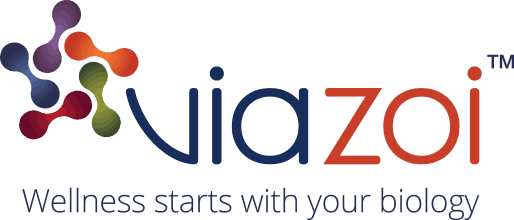
“Cancer is a genetic disease—that is, cancer is caused by certain changes to genes that control the way our cells function, especially how they grow and divide. These changes include mutations in the DNA that makes up our genes.” – National Cancer Institute.
In addition to the environmental cancer risk factors that we discussed previously, there are also genetic risk factors. Such factors are unfortunately not in our control as they are part of the genetic makeup. As you can see from the quote above, changes to our genes, such as mutations in the DNA of those genes, can increase the risk of cancer. But how do we get these mutations?
Inherited
One way we get these mutations is family. Inherited genetic mutations play a major role in about five to ten percent of all cancers, according to the National Cancer Institute (NCI).
Cancer-predisposing genetic changes are not the “inheritance” you hope for, but it is something that you can inherit from your parents if those genetic mutations were present in their reproductive cells. Such genetic changes are called germline changes and, according to the National Cancer Institute (NCI), these changes are present in every cell of the offspring. Therefore, if your parents had cancer-causing genetic mutations in their reproductive cells, every cell in your body would have the same genetic mutations.
While this may sound depressing, remember that these are technically “potential” cancer-causing genetic changes. While they increase the risk of developing cancer generally, the level of risk is different person to person. Having a cancer-predisposing mutation in the family is not a guarantee of cancer.
Acquired
In addition to mutations that may be passed down from parent to child, cancer-causing mutations in the DNA may also be caused during a person’s lifetime as a result of exposure to carcinogens or errors in cell division. These “acquired” genetic changes are referred to as somatic changes and may arise at any time during a person’s life.
Genetic Testing & Early Detection
According to the American Cancer Society, “early detection of cancer through screening has been determined to reduce mortality from cancers of the colon and rectum, breast, uterine cervix, and lung.” But these screenings don’t tell you what level of cancer risk exists in your genetic code. Screenings, such as mammograms, are utilized to check for the presence of cancer itself. A screening may show that you are cancer-free at that moment, but will not give you the likelihood of developing cancer in the future. This is where genetic testing comes in.
If you have a family history of cancer, genetic testing can identify whether or not you carry known cancer-causing mutations. In fact, NCI asserts that “many experts recommend that genetic testing for cancer risk be considered when someone has a personal or family history that suggests an inherited cancer risk condition…” We do want to remind you, however, that the presence of such an inherited mutation does NOT mean you will absolutely develop cancer.
For more information about genetic testing for cancer risk or to get your own reveal23 testing kit, visit our website at http://reveal23.com.
Come Back For The Finale
We have one more article in our cancer risk factor blog series. Visit again soon to read about the lifestyle cancer risk factors that you CAN control.
